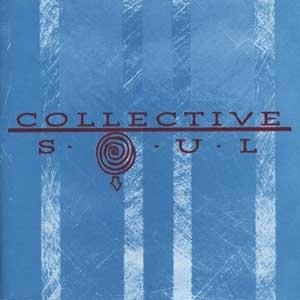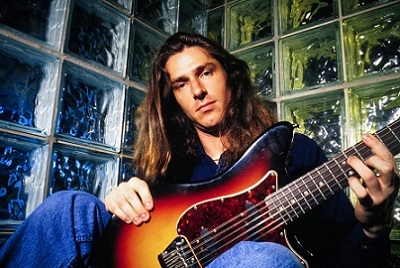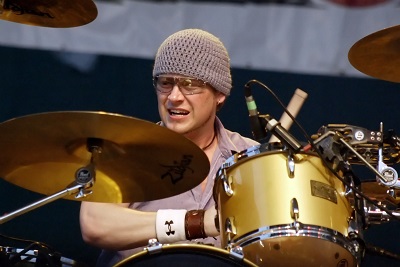The post-grunge, hard rock, alternative rock band Collective Soul did a funny thing by releasing two self-titled albums fourteen years apart. Using the cover art to drive a distinction, Collective Soul (1995) sometimes gets called the Blue Album to distinguish it from the Rabbit Album called Collective Soul (2009). Today we look into the Blue Album, released nearly 27-years ago on Tuesday, March 14, 1995.

Simple offers a straightforward philosophical declaration to begin the band’s first self-titled album Collective Soul. The song boils down the theme for the album as well as the song to feeling love. Feel love. Act with love. Let love guide your actions. It’s simple.

Untitled Track spins up a testimonial of love grounded in believing in a deliberately unnamed higher power. Lyrically, the statement of faith asserted reflects a belief in personally relating to a deity relevant to the performers, free from the testimony of prophets from whatever given holy texts (the Quran, the Old Testament of the Bible, the New Testament of the Bible, the Tipitaka, the Kojiki, etc.) that might apply.
The World I Know offers a testimony of the stark feelings of luxury and deprivations as witnessed during a walk Ed Roland had taken through New York City, New York. The song is an existential expression learning to understand the full magnitude good or bad only through the recognition of both.

Smashing Young Man reflects a response to a dispute between The Smashing Pumpkins front man Billy Corgan and Collective Soul front man Ed Roland. At the center of the dispute, as described briefly here, is the Collective Soul song Shine from the album Hints, Allegations, and Things Left Unsaid.
December spells out pretty clearly the disagreements following from Collective Soul‘s early success with their first tour, the band’s efforts to replicate that with music created for their second album, and the feedback from the band’s first manager to the band’s songwriter (Ed Roland) that seemed harsh and emotionally damaging by the creative songwriter.

Where the River Flows is a clear statement speaking out from a place of persistence against the forces of sadness that accompany the experiences of life. Whether the aggravating factor was a romantic relationship gone wrong, a friendship ended, or some other stimulus seems to complicate a simple thought presented with this tune.
As the album’s seventh song, Gel strikes me as a second bite of a concept raised with the song Simple. The song declares puts seemingly opposite conceptions of the experience of life next to one another was saying, simply, feel, act and be guided by while forgetting everything else. Again, it’s simple.

She Gathers Rain offers another song of a woman protagonist shedding the notion of formal religion with prophets from whatever formal religion had previously informed her metaphysical belief system. The woman sheds, copes with remorse, and, per the lyrics, gathers a new rain to rinse, like baptism, the metaphysical indoctrination that the new religious beliefs entail, free of the past learnings.
When the Water Falls continues the philosophical sense of She Gathers Rain by imagining a child’s questioning her articles of faith as passed to her from her parents. The questioning in this case includes the innocence of the natural inspiration of sun, rain, and the cycle that returns one to the other.

Collection of Goods offers an additional religious philosophical statement pointed towards freedom from hate and doubt with an aspiring for grace and love. The statements feel aspirational, as in here’s what you get by choosing to believe.
Bleed addresses the temptation of suicide paired with the success of counseling someone to choose life over death. The song is said to have been inspired by a case wherein brothers Dean Roland and Ed Roland needed to step in for their preacher father when a girl had come seeking spiritual assistance.

Reunion caps the album Collective Soul with an acoustic affirmation of the notion that draws a circle of love from where the album started to this song, finding the comfort of home in the certainty of a faith that is personal, familiar and deeply felt.
Matt – Wednesday, March 2, 2022

One thought on “Collective Soul and the 1995 self-titled album ‘Collective Soul’”